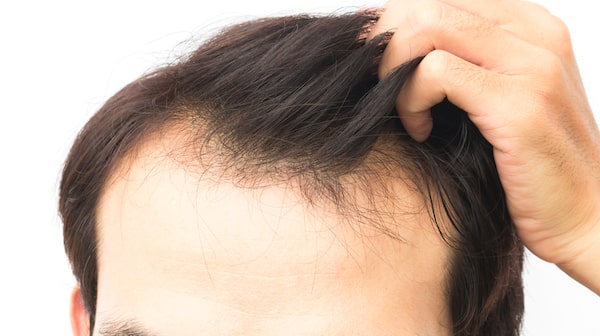The loss of hair on the scalp can impact both men and women. According to the American Hair Loss Association, an average of two-thirds of men will experience a large degree of hair loss by the age of fifty. However, each individual will experience their hair loss in a different way which means each person will need a personalized treatment plan that addresses their specific hair loss needs. Having said that, many people want to know if there is a certain age where they should address the issue of their hair loss.
Average Age for a Hair Transplant – What is It?

According to a ISHRS 2017 practice consensus (a study that brought together information from hundreds of hair restoration practitioners), the most common age for male hair transplant patients falls between the ages of 30-39 (32%). This does not mean that this age range is the ideal time for some to undergo a hair transplant. For example, many men will begin to exhibit hair loss in their early twenties while others do not show signs of hair loss before the ages of 40-50.
Plus, some people will need a hair transplant during the initial stages of hair loss. Others wait until they are further along with their hair loss before they worry about hair restoration. In general, this means a hair transplant can happen for patients in their early twenties to people in their eighties.
A Hair Transplant Before the Age of 20 – Is It Possible?
 There used to be a theory that patients could not have a hair transplant before the age of twenty-four as hair transplant surgeons said patients needed to wait until they showed full hair loss, or they started to show the pattern where the hair loss was going. However, advances in technology means hair transplant surgeons no longer need to wait as long as they did in the past. There are even some instances where a person can have a hair transplant before the age of 20 (in certain cases).
There used to be a theory that patients could not have a hair transplant before the age of twenty-four as hair transplant surgeons said patients needed to wait until they showed full hair loss, or they started to show the pattern where the hair loss was going. However, advances in technology means hair transplant surgeons no longer need to wait as long as they did in the past. There are even some instances where a person can have a hair transplant before the age of 20 (in certain cases).
Some of the reasons surgeons do not have to wait as long anymore to perform a hair transplant include:
- The performance of a microscopic evaluation of the scalp, as well as the hair, allows a doctor to accurately determine the areas where a patient is experiencing active hair loss on the scalp.
- It is no longer necessary to wait until the loss of scalp hair reaches the point that a patient is showing their final hair loss pattern.
- Doctors can examine the family pattern of hair loss to get a better idea of where the hairline will travel (thanks to the genetics of the patient).
Is There a Time When it is Too Late to Get a Hair Transplant?
Patients will be happy to know there is no upper age limit for having a hair transplant. Thanks to hair restoration techniques such as Follicular Unit Extraction (FUE), a person is able to have a hair transplant at any age as long the person is healthy enough to undergo the procedure.
Best Age to Get a Hair Transplant – What is it?
As much as people want a definitive answer about the best age to have a hair transplant, the ideal age for hair restoration varies per person. It is often said the ideal time for someone to have a hair transplant is when their hair loss is bothering them, and they want to address the issue. In addition, the person should not have any medical treatments available to them that will work well enough to resolve the problem.
Overall, there is not an age limit when it comes to hair restoration as long as the patient has undergone a proper evaluation before being named an ideal patient for the procedure. Studies of hair loss and hair restoration have shown that a loss of hair at an early age can become a large source of anxiety for young adults and even have a negative impact on both their social and professional lives. This is one of the main reasons many patients want to have a hair transplant at an early age.
What Should be Considered When it Comes to the Best Age for a Hair Transplant?
The surgeon should keep the family pattern of the hair loss in mind as this will often show how hair loss will continue over time. Any existing hair loss might also be treated with medications at an early stage in the hair loss process. The response of the patient to the medications can also determine the age when a person is able to have a hair transplant. Some patients respond well to medication during an early stage of hair loss which allows them to postpone when they will need to get a hair transplant. Other factors to consider include the self-image of the patient as well as the impact on their social life and career aspects. Each of these factors impact the age and timing of a hair transplant procedure.